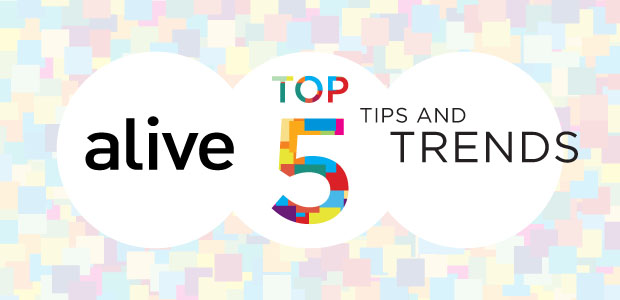Advertisement
Friday’s Top 5 Tips and Trends
Happy 2014! We hope your holidays were filled with health, happiness, and quality time with loved ones. Welcome to the first Top 5 Tips and Trends of the New Year. This week, we’re talking resolutions. 1. Get active now to age gracefully That New Year’s resolution about getting active isn’t just about dropping a size … Continued

Happy 2014! We hope your holidays were filled with health, happiness, and quality time with loved ones.
Welcome to the first Top 5 Tips and Trends of the New Year. This week, we’re talking resolutions.
1. Get active now to age gracefully
That New Year’s resolution about getting active isn’t just about dropping a size or two, or looking good on the beach: experts say that for those in their 40s, 50s, and 60s, working out is all about staying healthy as seniors.
And it isn’t just about preventing cancer, diabetes, or heart disease, either—it’s about maintaining muscle mass and flexibility to prevent falls and remain able to do everyday tasks, such as climbing stairs, opening jars, and getting out of the bathtub. Feeling inspired? Check out our article “Resistance for Your Health.”
2. Quitting smoking may improve sleep
Another popular resolution is quitting smoking. If you need a little more encouragement, consider the results of a new study: turns out that quitting smoking can improve your sleep (and who couldn’t use that?). Cigarette smoke disrupts our circadian rhythms—our body’s natural clocks. Find out more benefits of butting out—and how to do it—in this alive bog post.
3. Truth to “an apple a day”?
Decided to eat better this year? You’re not alone. And new research suggests getting started simply by eating an apple (or any fruit or veggie) every day. Based on previous research, the experts predicted that if everyone in the UK ate an extra portion of fruit or vegetables every day, as many as 11,000 deaths could be averted every year from vascular causes alone.
It’s a simple solution to getting us eating better. Find out which produce is best to eat organic, and which might not matter as much in our article, “20 Ways to Save on Food.”
4. Discovery of “stress gene” and heart attack link
If you—like me—are trying to stress less this year, here’s an interesting study: it turns out that some of us have a genetic change that makes us more vulnerable to the effects of stress, therefore increasing the risk of death from heart attack or heart disease. Stress reduction strategies include breathing exercises, good nutrition and sufficient exercise, and spending time in nature.
5. Health groups cracking down on antibacterials
Here’s a way to be healthier and gentler on the environment this year that you likely haven’t considered: stop using antibacterial products, such as soaps and wipes, and some toothpastes, mouthwashes, and deodorants. The main villain here is a common chemical called triclosan, which is harmful to the environment, can disrupt hormones, and can contribute to antibiotic resistance.
Thankfully, the US Food and Drug Administration is finally placing triclosan under scrutiny, demanding that it be proven more effective against infection than regular soap and water, and safe. If not, it may be removed from the market.





